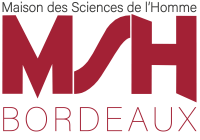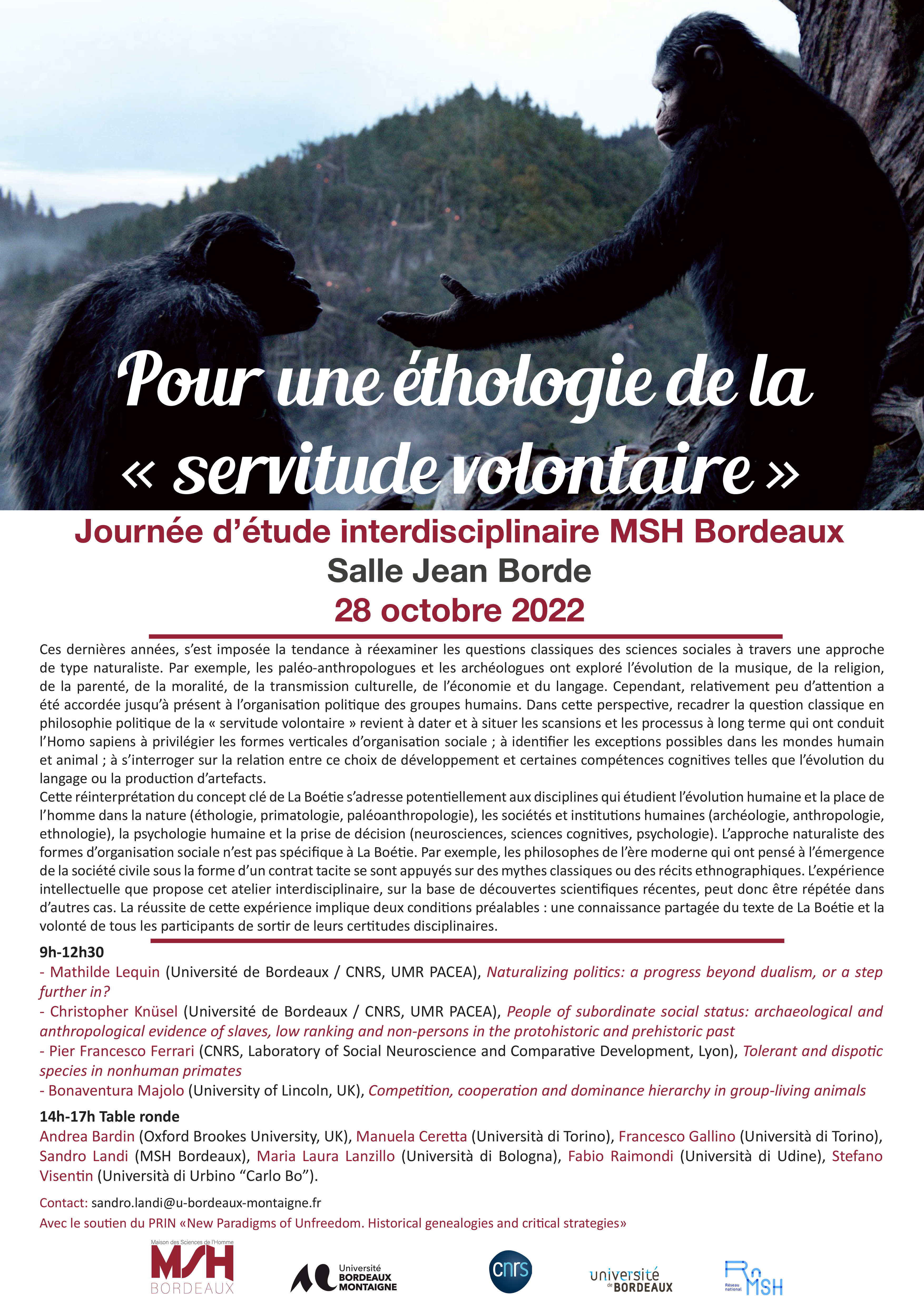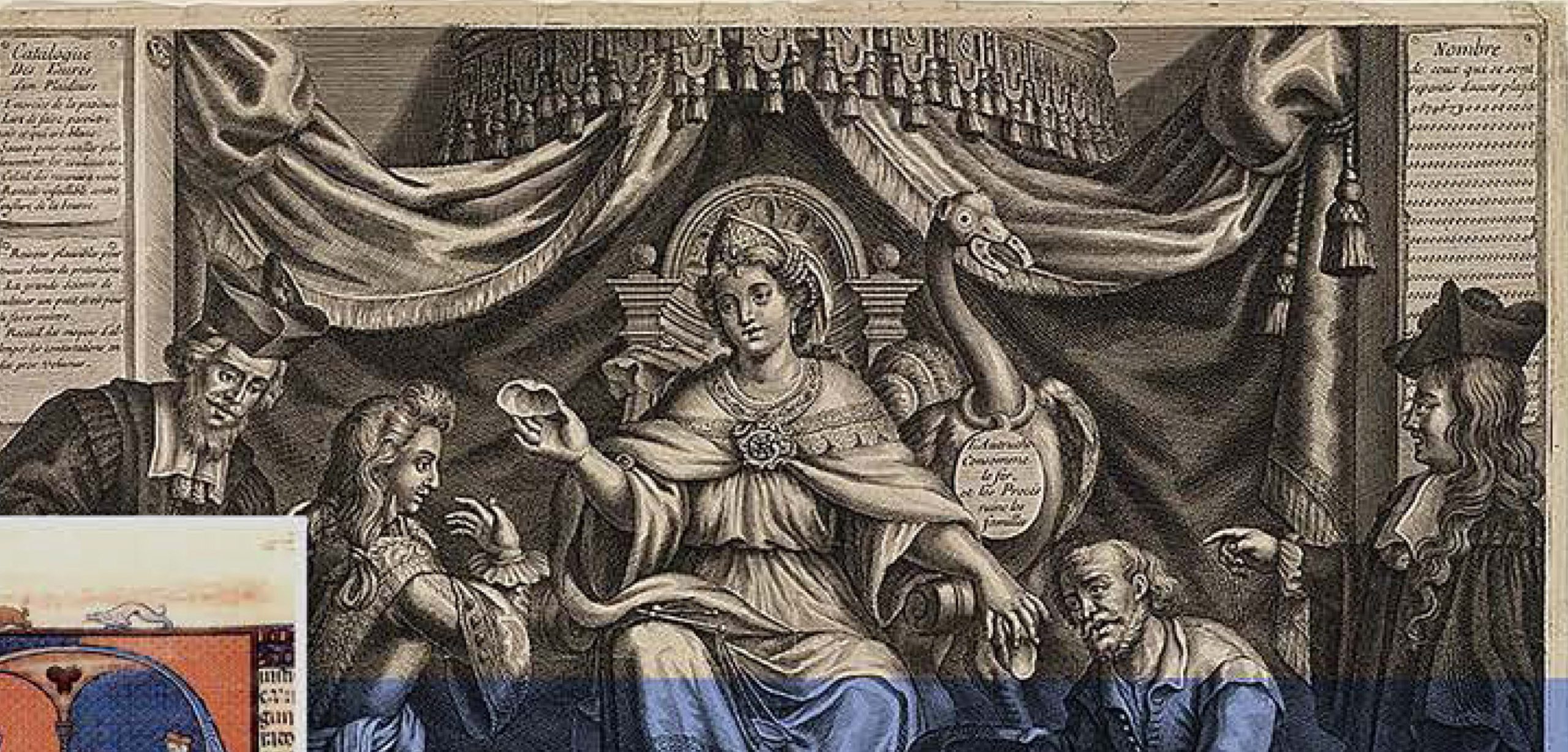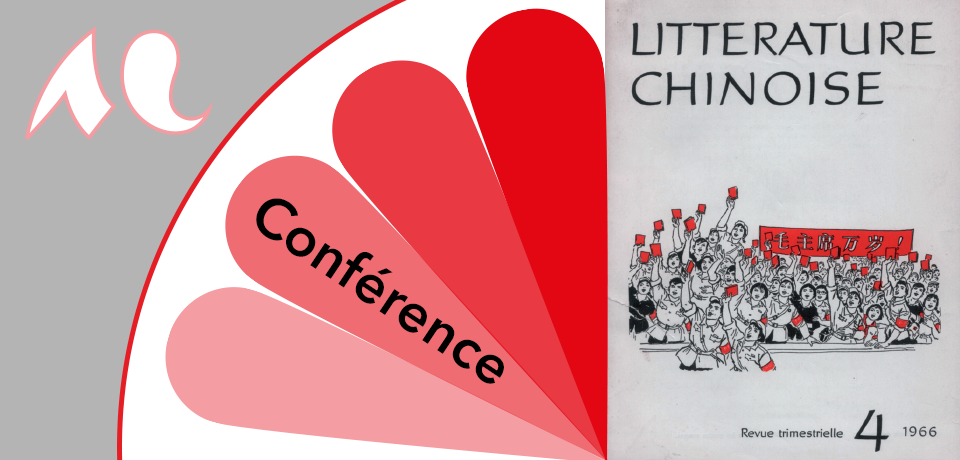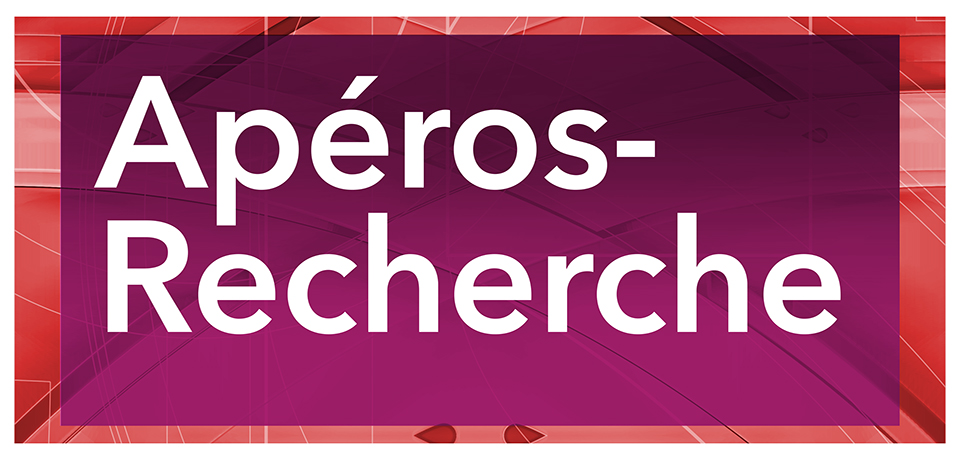October 28, 2022, MSH Bordeaux, Salle Jean Borde
In person and remotely ( zoom link )
« Let us therefore say that to man all things are as natural to him, to which he nourishes himself and accustoms himself; but this alone is naive to him, to which his simple and unaltered nature calls him; thus the first reason for voluntary servitude is custom: like the bravest courtaus who at first bite the brake and then play with it; and where formerly they fought against the saddle, they now adorn themselves in harness, and all proudly gorge themselves under the bard. They say that they have always been suffered; that their fathers lived thus; they think that they are obliged to endure evil, and are deceived for example, and even under the length of time they become the possession of those who tyrannize them, but in truth years never give the right to do evil, so magnify the insult ».
According to La Boétie, “custom” (habit) is a second nature that makes enslavement acceptable. The analogy between human behavior and animal behavior helps support this argument, but raises a question that has remained largely unanswered: is it possible to identify the anthropological or, conversely, ethological presuppositions of “voluntary servitude” ? The objective of this interdisciplinary workshop is to test this key notion of political philosophy by bringing together disciplines and researchers who question the foundations of the “human” and the “social”.
In recent years, there has been a tendency to re-examine classic questions in the social sciences through a naturalist approach. For example, paleo-anthropologists and archaeologists have explored the evolution of music, religion, kinship, morality, cultural transmission, economics, and language. However, relatively little attention has been paid to date to the political organization of human groups. From this perspective, reframing the classic question in political philosophy of “voluntary servitude” amounts to dating and situating the scansions and long-term processes which led Homo sapiens to favor vertical forms of social organization; to identify possible exceptions in the human and animal worlds; to question the relationship between this choice of development and certain cognitive skills such as the evolution of language or the production of artifacts.
This reinterpretation of La Boétie's key concept potentially addresses disciplines that study human evolution and man's place in nature (ethology, primatology, paleoanthropology), human societies and institutions (archaeology, anthropology, ethnology). , human psychology and decision-making (neurosciences, cognitive sciences, psychology). The naturalist approach to forms of social organization is not specific to La Boétie. For example, early modern philosophers who thought of the emergence of civil society as an unspoken contract relied on classical myths or ethnographic accounts. The intellectual experience offered by this interdisciplinary workshop, based on recent scientific discoveries, can therefore be repeated in other cases. The success of this experience implies two prerequisites: shared knowledge of the text of La Boétie and the desire of all participants to move beyond their disciplinary certainties.
9 a.m.-12:30 p.m.
- Mathilde Lequin (University of Bordeaux / CNRS, UMR PACEA), Naturalizing politics: a progress beyond dualism, or a step further in?
- Christopher Knüsel (University of Bordeaux / CNRS, UMR PACEA), People of subordinate social status: archaeological and anthropological evidence of slaves, low ranking and non-persons in the protohistoric and prehistoric past
- Pier Francesco Ferrari (CNRS, Laboratory of Social Neuroscience and Comparative Development, Lyon), Tolerant and dispotic species in nonhuman primates
- Bonaventura Majolo (University of Lincoln, UK), Competition, cooperation and dominance hierarchy in group-living animals
2 p.m.-5 p.m. Round table:
Andrea Bardin (Oxford Brookes University, UK), Manuela Ceretta (Università di Torino), Francesco Gallino (Università di Torino), Sandro Landi (MSH Bordeaux), Maria Laura Lanzillo (Università di Bologna), Fabio Raimondi (Università di Udine), Stefano Visentin (Università di Urbino “Carlo Bo”).
Download the program (pdf)
November 9-10, 2022, conference, Salle Jean Borde, MSH Bx
November 8, 2022, conference, Salle Jean Borde, MSH Bx
